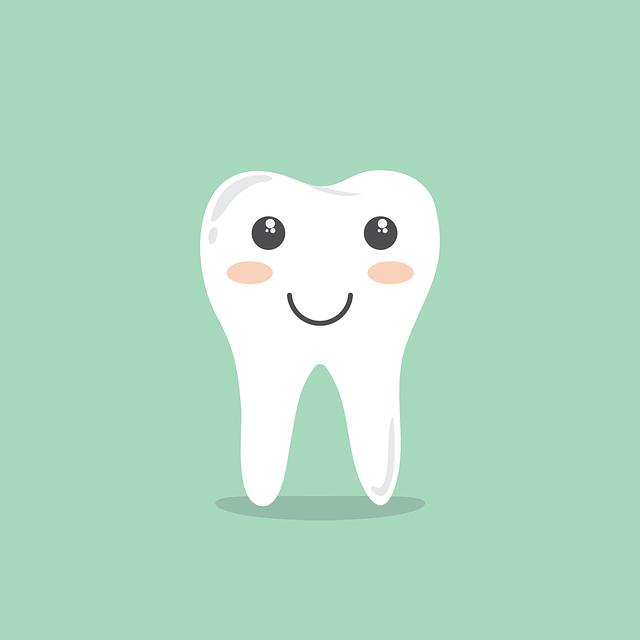What Can Salt Do to Your Teeth? Dental Effects Explored
Salt is a staple ingredient in every kitchen, enhancing the flavors of our favorite dishes and adding that extra zing to our taste buds. But have you ever wondered what salt can do to your teeth? While often overlooked, the dental effects of salt can be both surprising and concerning. In this article, we will delve into the topic with utmost confidence, knowledge, and neutrality, shedding light on the impact salt can have on your pearly whites. So, grab a seat, lean in, and let us explore the hidden secrets that lie within this seemingly innocuous mineral.
1. Understanding the Impact of Salt on Dental Health: Unveiling the Dental Effects
When it comes to dental health, salt has a significant impact that often goes unnoticed. Understanding the dental effects of salt can help us make informed decisions about our oral hygiene. Here are some key points to consider:
- Increased tooth sensitivity: Excessive salt consumption can lead to increased tooth sensitivity, making it uncomfortable to consume hot or cold foods and beverages.
- Gum inflammation: Salt can contribute to gum inflammation and swelling, which can lead to gum disease if left untreated. This can result in redness, tenderness, and bleeding of the gums.
- Tooth decay: Salt can also play a role in tooth decay. Consuming high-salt foods and drinks, especially those with added sugars, can promote the growth of harmful bacteria in the mouth, leading to cavities.
It is crucial to maintain a balanced salt intake and practice good oral hygiene to minimize the dental effects of salt. Regular brushing, flossing, and dental check-ups are essential for maintaining optimal dental health. Additionally, reducing the consumption of high-salt and sugary foods can have a positive impact on overall oral well-being.

2. The Hidden Culprit: How Salt Affects Your Teeth and Oral Health
Salt is often considered a staple in our diet, but did you know that it can have a significant impact on your oral health? Excessive salt consumption can lead to a variety of dental issues that may go unnoticed until it’s too late. Here’s a closer look at how salt affects your teeth and what you can do to protect your oral health.
1. Enamel erosion: Salt, when consumed in excess, can contribute to the erosion of tooth enamel, the protective layer that shields your teeth from decay. This erosion can weaken the enamel, making it more susceptible to cavities and sensitivity.
2. Gum disease: High salt intake can also increase the risk of gum disease. Salt has been found to stimulate the growth of bacteria in the mouth, leading to inflammation and infection of the gums. This can cause gum recession, tooth loss, and other serious oral health problems.
3. Dry mouth: Salt is known to dehydrate the body, and this includes the mouth. When your mouth is dry, it produces less saliva, which is essential for maintaining a healthy oral environment. Saliva helps wash away food particles, neutralize acids, and protect against tooth decay. So, excessive salt consumption can result in dry mouth, increasing the risk of dental issues.
Protecting your teeth and oral health requires being mindful of your salt intake. Moderation is key. Be sure to read food labels, choose low-sodium options, and limit your consumption of overly salty foods. Additionally, practicing good oral hygiene, such as brushing twice a day, flossing, and visiting your dentist regularly, can help counteract the effects of salt on your teeth and gums.
3. From Flavor Enhancer to Dental Dilemma: Unraveling the Dental Side Effects of Salt
While salt is commonly known for enhancing the flavor of our food, its dental side effects are often overlooked. Excessive consumption of salt can lead to a range of dental dilemmas that can significantly impact oral health. Understanding these side effects is crucial for maintaining a healthy smile.
Tartar buildup: Salt can contribute to the formation of tartar on teeth, which is a hard, yellowish deposit that cannot be removed through regular brushing. Tartar buildup provides a favorable environment for the growth of bacteria, leading to various dental issues.
Gum disease: Excessive salt intake can increase the risk of developing gum disease, such as gingivitis and periodontitis. These conditions cause inflammation, bleeding gums, and even tooth loss if left untreated.
Tooth sensitivity: Salt consumption can erode tooth enamel, exposing the sensitive dentin underneath. This can result in tooth sensitivity, causing discomfort or pain when consuming hot or cold foods and beverages.
To maintain optimal oral health, it is essential to moderate salt intake and practice good oral hygiene. Regular brushing, flossing, and dental check-ups can help prevent these dental dilemmas and ensure a healthy smile for years to come.
4. Salt and Your Teeth: Exploring the Dental Consequences of a Common Ingredient
Salt is a common ingredient found in many of our favorite foods, but have you ever stopped to consider its impact on your dental health? Surprisingly, salt can have both positive and negative consequences for your teeth. Let’s explore how this common ingredient affects your oral health.
The Benefits:
- Salt can help to stimulate saliva production, which plays a crucial role in maintaining a healthy mouth. Saliva helps to neutralize acids, wash away food particles, and prevent dry mouth.
- Using saltwater as a mouth rinse can provide relief for minor gum irritations and promote healing after dental procedures.
- Some studies suggest that salt may have antimicrobial properties, helping to reduce the bacteria that cause bad breath and gum disease.
The Drawbacks:
- Consuming excessive amounts of salt can contribute to dehydration, which can lead to dry mouth. Dry mouth, in turn, increases the risk of tooth decay and gum disease.
- High salt intake has been linked to hypertension, which can negatively impact overall oral health and increase the risk of gum problems.
- Processed foods, often high in salt content, can stick to teeth and contribute to the formation of plaque and cavities.
It’s important to strike a balance when it comes to salt consumption. Moderation and good oral hygiene practices, such as regular brushing, flossing, and dental check-ups, are key to maintaining a healthy smile.
5. Salty Truths: The Dental Ramifications of Excessive Salt Consumption
Salt is a staple in many diets, but excessive consumption can have serious dental ramifications. Here are some important truths about the effects of salt on our oral health:
1. Tooth Decay: Excessive salt intake can lead to an increased risk of tooth decay. When we consume too much salt, our saliva becomes more acidic, creating an ideal environment for bacteria to thrive. This can result in the erosion of tooth enamel and the development of cavities.
2. Gum Disease: Salt can also contribute to the development of gum disease. High salt intake can lead to inflammation and swelling of the gums, making them more susceptible to infection. This can eventually cause gum recession, tooth loss, and even bone damage in severe cases.
3. Dry Mouth: Salt has a dehydrating effect on the body, including the mouth. Excessive salt consumption can reduce saliva production, leading to dry mouth. Saliva plays a crucial role in maintaining oral health by neutralizing acids, washing away food particles, and preventing bacteria from multiplying. Without sufficient saliva, the risk of tooth decay and gum disease increases.
To maintain good oral health, it is important to consume salt in moderation. Be mindful of hidden sources of salt in processed foods and opt for a balanced diet rich in fresh fruits and vegetables. Regular dental check-ups, proper oral hygiene practices, and a well-balanced diet can help mitigate the dental ramifications of excessive salt consumption.
6. A Pinch of Salt, a Pound of Dental Problems: Unveiling the Impact on Your Teeth
The Impact of Salt on Your Teeth
Salt is a staple ingredient in our diets, adding flavor to our favorite dishes. However, you may be surprised to learn that excessive salt intake can have a negative impact on your dental health. Here are some key ways in which salt can affect your teeth:
- Salt can contribute to the formation of cavities: Consuming foods high in salt can lead to an increase in the acidity levels in your mouth, which creates an ideal environment for bacteria to thrive. This can result in the formation of cavities and tooth decay.
- Salt can cause gum inflammation: Excessive salt consumption can irritate your gum tissues, leading to inflammation and gum disease. This can cause discomfort, bleeding gums, and even tooth loss if left untreated.
- Salt can contribute to bad breath: The bacteria that thrive in a high-salt environment can release foul-smelling gases, resulting in persistent bad breath.
It is important to note that moderate salt consumption is generally safe for your teeth. However, it is crucial to maintain a balanced diet and practice good oral hygiene to minimize the potential negative effects of salt on your dental health.
7. Beyond the Taste: The Surprising Ways Salt Can Harm Your Dental Health
While salt is a common ingredient in our daily meals, it’s essential to be aware of the potential harm it can cause to our dental health. Here are some surprising ways excessive salt consumption can negatively impact your teeth and gums:
- Enamel Erosion: High salt intake can contribute to the erosion of tooth enamel, the protective outer layer of your teeth. This can lead to increased tooth sensitivity and a higher risk of cavities.
- Gum Inflammation: Excessive salt consumption can trigger inflammation in the gums, leading to gum disease. Swollen and bleeding gums are common signs of this condition, which, if left untreated, can result in tooth loss.
- Dry Mouth: Consuming too much salt can also contribute to dry mouth, a condition where your mouth doesn’t produce enough saliva. Saliva plays a crucial role in neutralizing acids and preventing tooth decay, so a lack of it can be detrimental to your oral health.
While it’s important to moderate your salt intake for the sake of your dental health, it’s equally vital to maintain good oral hygiene practices. Regular brushing, flossing, and visits to your dentist can help counteract the potential harm caused by excessive salt consumption. Remember, balance is key when it comes to maintaining a healthy smile!
8. Salt’s Silent Attack: Unmasking the Dental Effects You Need to Know
Salt is commonly used in our daily lives for enhancing the taste of food, but did you know that it can silently attack our dental health? Understanding the dental effects of salt is crucial for maintaining a healthy smile. Let’s unmask the hidden dangers that salt can pose to your teeth and gums.
1. Enamel Erosion: Excessive salt consumption can lead to the erosion of tooth enamel, which is the protective outer layer of your teeth. This can result in increased tooth sensitivity and make your teeth more prone to cavities.
2. Gum Inflammation: Consuming high amounts of salt can cause inflammation in the gums, leading to conditions like gingivitis and periodontitis. These can cause gum bleeding, bad breath, and even tooth loss if left untreated.
3. Dry Mouth: Salt can contribute to dry mouth, a condition where there is insufficient saliva production. Saliva plays a vital role in maintaining oral health by neutralizing acids and washing away food particles. A dry mouth can increase the risk of tooth decay and other dental problems.
To protect your dental health, it’s important to moderate your salt intake and maintain a balanced diet. Regular brushing, flossing, and dental check-ups are also essential for keeping your teeth and gums in optimal condition.
9. Salt and Your Smile: Understanding the Dental Consequences for Optimal Oral Health
Salt is a common ingredient in our daily diet, but did you know that it can have consequences for your dental health? When consumed in excess, salt can contribute to several oral health issues. Understanding these consequences is crucial for maintaining optimal oral health.
Here are some dental consequences of excessive salt consumption:
- Tooth Decay: Excessive salt intake can lead to an increased risk of tooth decay. This is because salt can weaken the protective enamel on your teeth, making them more susceptible to decay-causing bacteria.
- Gum Disease: Salt can also contribute to the development of gum disease. Excess salt can irritate the gums and cause inflammation, leading to gum disease and potential tooth loss if left untreated.
- Bad Breath: Salt can contribute to bad breath. Consuming too much salt can cause dry mouth, which reduces saliva production. Saliva helps to wash away bacteria and food particles that can cause bad breath.
To maintain optimal oral health, it is important to limit your salt intake and practice good oral hygiene. Brushing your teeth twice a day, flossing daily, and visiting your dentist regularly are essential habits for preventing dental issues related to salt consumption. Additionally, be mindful of the salt content in your food choices and opt for low-salt alternatives whenever possible.
10. The Bitter Truth: Unveiling the Relationship Between Salt and Dental Well-being
Excessive salt consumption has long been associated with cardiovascular diseases and high blood pressure. However, recent studies have shed light on another detrimental effect of salt on our overall well-being: its impact on dental health. While the correlation may not be immediately obvious, the bitter truth is that salt can significantly harm the health of our teeth and gums.
Here are some key insights into the relationship between salt and dental well-being:
- Enamel Erosion: High sodium levels in our diet can lead to the erosion of tooth enamel, the protective outer layer of our teeth. This erosion weakens the enamel, making our teeth more susceptible to cavities and sensitivity.
- Gum Inflammation: Excessive salt intake can contribute to inflammation of the gums, leading to gum disease. This condition, known as gingivitis, can cause redness, swelling, and even bleeding of the gums.
- Altered Saliva Composition: Salt can alter the composition of saliva, reducing its ability to neutralize acid and fight harmful bacteria in the mouth. This disruption in the natural balance of saliva can further increase the risk of tooth decay and gum problems.
It is crucial to be mindful of our salt intake and make conscious efforts to reduce it. By maintaining a balanced diet, practicing good oral hygiene, and regularly visiting the dentist, we can protect our dental well-being and prevent the bitter consequences of excessive salt consumption.
Frequently Asked Questions
Q: What are the dental effects of salt on our teeth?
A: Salt can have various effects on our teeth, and it’s important to understand how it can impact our oral health.
Q: How does salt affect tooth enamel?
A: Salt, when consumed in excessive amounts, can contribute to tooth enamel erosion. The high sodium content in salt can lead to dehydration, reducing saliva production and making the mouth more acidic. This acidity, combined with the friction caused by chewing salty foods, can gradually wear away the protective enamel layer on our teeth.
Q: Can salt cause tooth sensitivity?
A: Yes, salt can indeed contribute to tooth sensitivity. As the enamel weakens due to salt-induced erosion, the underlying dentin layer becomes more exposed. This can lead to heightened sensitivity to hot, cold, sweet, or acidic foods and beverages.
Q: Is salt linked to gum disease?
A: While salt itself may not directly cause gum disease, its effects on tooth enamel can indirectly contribute to the development of gum problems. As enamel erodes, the teeth are more prone to decay and cavities, which can eventually lead to gum disease if left untreated.
Q: Does salt have any positive effects on dental health?
A: In moderation, salt can have certain positive effects on dental health. Saltwater rinses, for example, can help reduce inflammation, heal minor mouth sores, and provide temporary relief from toothaches or gum pain. However, it is crucial to maintain a balanced approach and consult a dentist for appropriate usage.
Q: Are there any precautions or tips for minimizing salt’s dental effects?
A: Absolutely! To minimize salt’s negative impact on oral health, it is advisable to practice good oral hygiene, such as brushing twice a day with a fluoride toothpaste and flossing regularly. Additionally, limiting salt intake, staying hydrated, and seeking professional dental advice can help mitigate any potential risks.
Q: Can salt affect dental treatments or procedures?
A: Excessive salt consumption can potentially interfere with certain dental treatments. For instance, salt’s erosive effects on tooth enamel can compromise the longevity of dental fillings or weaken cement used for dental crowns. It is crucial to inform your dentist about any dietary habits to ensure appropriate treatment planning and maintenance.
Q: How can one strike a balance between salt consumption and dental health?
A: Striking a balance involves being mindful of our salt intake and making conscious dietary choices. Opting for low-sodium food alternatives, avoiding excessive salt in cooking, and reading food labels for sodium content can help maintain a healthier diet. Ultimately, moderation and regular dental check-ups are key to preserving dental health while enjoying the flavors salt adds to our meals.
Remember, consulting a dental professional is essential for personalized advice regarding your specific oral health concerns.
In Summary
In conclusion, it is evident that salt can have both positive and negative effects on our dental health. While saltwater rinses can help to alleviate gum inflammation and promote healing, excessive consumption of salty foods and drinks can lead to enamel erosion and tooth decay. It is crucial to maintain a balanced and moderate approach when it comes to salt intake for the sake of our teeth. Regular dental check-ups and proper oral hygiene practices, such as brushing and flossing, remain paramount in preserving our dental well-being. Remember, knowledge is power, and being aware of the potential dental effects of salt empowers us to make informed choices for the long-term health of our teeth. So, let us embrace a tooth-friendly approach to salt and ensure our smiles shine brightly for years to come.






